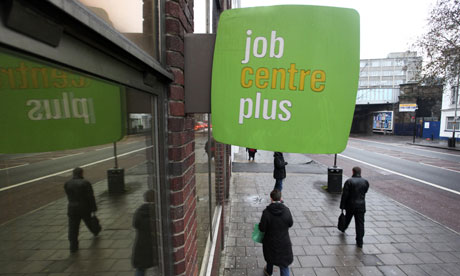 |
| Magic Breakfast working to feed London"s hungry kids wins the Big Society Award in 2011 |
Looking back on an extraordinary year I can hardly believe that our small organisation could have achieved so much and made such a difference! That is, of course, down to our members, networks, clients, supporters, co-chairs Mark Sesnan and Sophi Tranchell and board, all of whom enabled the fantastic SEL team to really pick up the pace for social enterprise in 2011.
The year started for us by hosting the world’s largest 2012 Olympic social enterprise conference at the London Film Museum where hundreds of delegates met to discuss and plan a successful games that will establish a worthwhile and long-lasting legacy for the wider community.
SEL also held a conference, put together by our own local government expert Mei Hui, especially for London’s local authorities with the support of London Councils. This was the 5th LAConnects conference and the most successful yet. Bringing together representatives of all 32 boroughs and the City, we took a good hard look at their social enterprise strategies and ways in which boroughs could do more with social enterprise. This was an important conversation to have, especially in such difficult economic times because social enterprises are working with some of society's most vulnerable citizens who are always the hardest hit by economic decline.
A big breakthrough came in 2011 with another seminal partnership, this time with NESTA, the leading innovation agency, with which we worked to established the ground-breaking Transition Institute. The organisation, led by Director and policy supremo Dominic Potter and supported by the dedicated Jillian Oxenham, gained its full institute status from the government - no mean feat, because it provides a unique and vital platform for the discussion and promotion of public sector reform that maximises social value.
I am privileged to Chair the Institute, which has as its board members luminaries like Sir Stephen Bubb, Lord Micheal Bichard, Ed Mayo, Philip Colligan, Sue Bruce, Helen Bailey, Andrew Burnell, Sophia Looney, Mark Sesnan and Ben Lucas.
The Institute has attracted real media attention and as a result been contacted by an ever-growing number of public sector workers looking for information and support in the pursuit of their plans for a new approach to service delivery.
Launching its first publication in 2011, Social Value Ethos the Instutute offers strategic support to the Public Services (Social Value) Bill which, thanks to Chris White MP and Minister Nick Hurd’s tenacious campaigning, has made it to the House of Lords. We hope it gets through and is passed in 2012.
Our international work continued to be a significant part of the 2011 story with SEL consultants working in Croatia, South Korea and Copenhagen led by our chief boffin, Director of Policy and Research, Sabina Khan who has also started a series of tele-events for the Chinese government with partners, the British Council.
SEL’s work with local authorities continued to blossom and, over the year, we trained over 400 local authority officers in how they might approach becoming independent service deliverers. Building on their challenges and experiences and those of the 10 local authorities we worked through our consultancy team, we published Spin Out and Deliver from the Guardian as part of our Social Enterprise Day celebrations, which has since been downloaded from the SEL site many thousands of times.
We also continued to work with the Department of Health researching the challenges faced by health sector spin-out services through our research hub and consultancy.
We also continued to work with the Department of Health researching the challenges faced by health sector spin-out services through our research hub and consultancy.
Our links with the corporate world also defined 2011 in that we delivered eight oversubscribed events for social entrepreneurs sponsored by our partners KPMG and PwC. These events have become astonishingly popular and offer real evidence of the way in which the larger City-based firms have valuable expertise to offer social enterprises that our members, in turn, are delighted to benefit from.
Thanks to our Membership Team, Emma Hodson and Clare Sharpen, the SEL family has risen in number steadily all year and means that despite the battles we have fought and, I have to say, not always won for social enterprise, we are clearly doing something right. Offering programmes like ERDF Winning Contracts headed up by our own powerhouse Sue Potter, we know has really helped members. This programme saw us train over 580 social enterprises in improving their performance in securing and delivering quality public sector contracts. Independent assessment showed that our training resulted in over £4 million of new business being won by clients who specified the training they had from SEL was key to their subsequent success.
I was a judge for the Ernst and Young Entrepreneur of the Year, the Guardian Public Sector, the Third Sector and Social Enterprise Photography awards all in 2011. These competitions might not change the world but they give us an unparalleled opportunity to make sure that social enterprises like Livity in Brixton and the Acton African Well Woman Centre get the recognition they deserve.
Our membership goes from strength to strength and is about to top 3,000, which is fantastic and makes us the largest social enterprise community in Europe. It seems that as things get tougher, social enterprises are looking for more information and support and SEL is the obvious go-to choice.
Having the design and techno wizard, Surbhi Bahl sorting out our front end has, I hope you agree, made a real difference to the impact and clarity of our message. Surbhi has made sure that the success of members like Magic Breakfast, which joined SEL members GLL and Central Surrey Health when they bagged a Big Society Award in 2011, was shared by the whole network and SEL’s now significant global audience.
Astonishingly 2011 saw SEL get our members covered in at least 43 pieces of national media and countless more sector-specific and local media sources. We also continued to do well in the world of social media with a combined (SEL, Transition Institute and aogdennewton) Twitter following of over 6,000 and consistently high Google ratings. If you search social enterprise from anywhere in the world, SEL will not be far from the top of any search engines suggested links.
But what is my highlight of 2011? It has to be the successful conclusion of our London Future 500 programme in which we got 500 young people jobs in social enterprise, 69% of whom are no longer on benefits.
Social enterprise is all about making a difference, and that certainly is making a very big difference indeed.
I wish you all the very best for the holidays and a prosperous 2012, whatever it brings SEL will be there working tirelessly and creatively for you,
All the very best
Allison








